PhenoTec Research Service & Consulting
PhenoTec AG offers a broad spectrum of preclinical services with an emphasis on acute and chronic lung diseases, infectious diseases, immunological and morphological investigations
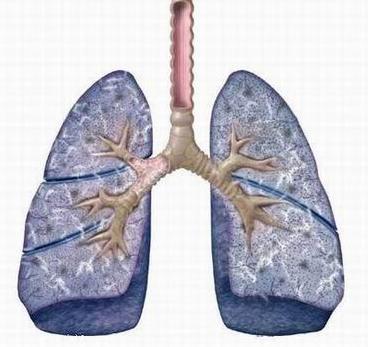
Lung inflammation models
Allergic asthma, Acute respiratory distress syndrome (ARDS), Subacute smoke exposure, bronchitis, Chronic bronchitis and fibrosis (CPOD), Lung emphysema
Read more-
See more information in these publications
- Schnyder-Candrian, Silvia, et al. "Interleukin-17 is a negative regulator of established allergic asthma." Journal of Experimental Medicine 203.12 (2006): 2715-2725.
- Togbe, Dieudonnée, et al. "Thymic stromal lymphopoietin enhances Th2/Th22 and reduces IL‐17A in protease‐allergen‐induced airways inflammation." International Scholarly Research Notices 2013.1 (2013): 971036.
- Darby, Matthew, et al. "ILC3-derived acetylcholine promotes protease-driven allergic lung pathology." Journal of Allergy and Clinical Immunology 147.4 (2021): 1513-1516.
- Henderson, Neil C., Florian Rieder, and Thomas A. Wynn. "Fibrosis: from mechanisms to medicines." Nature 587.7835 (2020): 555-566.
- Cytokine Fajgenbaum, David C., and Carl H. June. "Cytokine storm." New England Journal of Medicine 383.23 (2020): 2255-2273.
- Blasina, Fernanda, et al. "Efficacy and safety of a novel nitric oxide generator for the treatment of neonatal pulmonary hypertension: Experimental and clinical studies." Pulmonary pharmacology & therapeutics 54 (2019): 68-76.
Viral and other infections
In view of the high prevalence of respiratory infections, we have established H1N1 influenza, rhinovirus and RSV virus infection models to test new inhibitors.
We have experience on parasite, fungal, bacterial and helminth infection in mice, for which we can advise to conduct experimental studies.
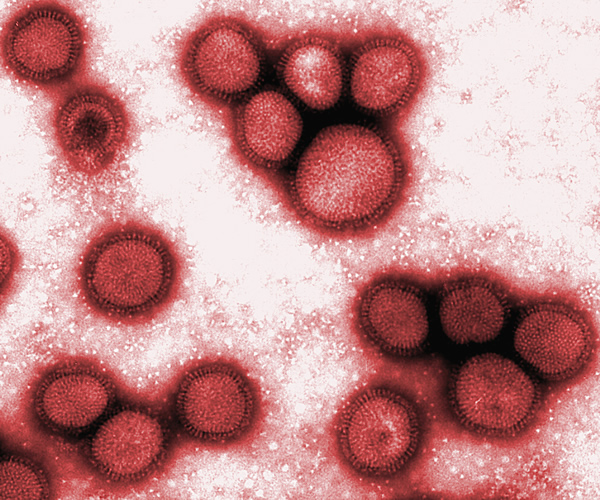
-
See more information in these publications
- Palomo, Jennifer, et al. "Role of IL-1β in experimental cystic fibrosis upon P. aeruginosa infection." PLoS One 9.12 (2014): e114884.
- Winkler, Emma S., et al. "SARS-CoV-2 infection of human ACE2-transgenic mice causes severe lung inflammation and impaired function." Nature immunology 21.11 (2020): 1327-1335.
- Imai, Masaki, et al. "Syrian hamsters as a small animal model for SARS-CoV-2 infection and countermeasure development." Proceedings of the National Academy of Sciences 117.28 (2020): 16587-16595.
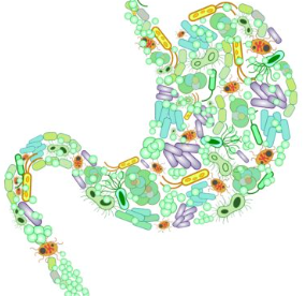
Microbiome, Metabolome, germfree models and FMT
Recent insights revealed that the microbiota of our body plays an important part in homeostasis and diseases.
Germfree (GF) mice and rats are important tools for basic and translational research, investigating metabolites and
metabolism of xenobiotic. The platform has a huge capacity to breed GF mice and rats and for experimental studies.
Why to study microbiome?
-
See more information in these publications
- Lamas, Bruno, et al. "CARD9 impacts colitis by altering gut microbiota metabolism of tryptophan into aryl hydrocarbon receptor ligands." Nature medicine 22.6 (2016): 598-605.
- Hrdý, Jiří, et al. "Lactobacillus reuteri 5454 and Bifidobacterium animalis ssp. lactis 5764 improve colitis while differentially impacting dendritic cells maturation and antimicrobial responses." Scientific reports 10.1 (2020): 5345.
- Couturier-Maillard, Aurélie, et al. "NOD2-mediated dysbiosis predisposes mice to transmissible colitis and colorectal cancer." The Journal of clinical investigation 123.2 (2013).
- Sedhom, Mamdouh AK, et al. "Neutralisation of the interleukin-33/ST2 pathway ameliorates experimental colitis through enhancement of mucosal healing in mice." Gut 62.12 (2013): 1714-1723.
Skin disease models
We have established murine models of human skin disease such as psoriasis, atopic dermatitis and wound healing, which is an active research area to understand the pathways enabling novel drug targets.
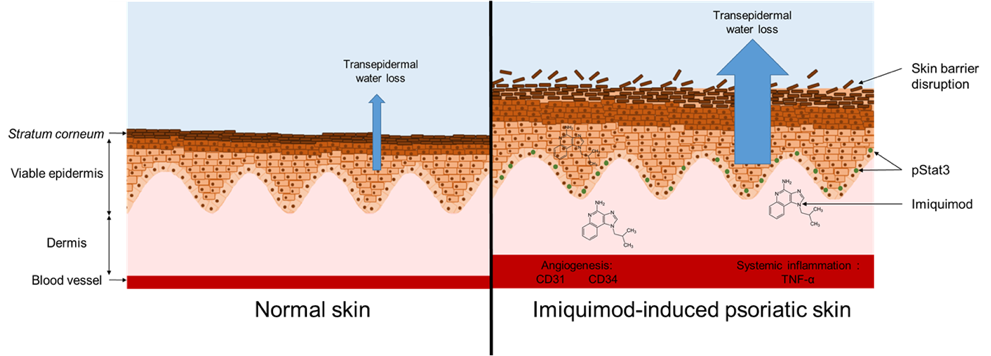
-
See more information in these publications
- de Melo, Bruno Marcel Silva, et al. "S100A9 drives the chronification of psoriasiform inflammation by inducing IL-23/type 3 immunity." Journal of Investigative Dermatology 143.9 (2023): 1678-1688.
- Lecron, Jean-Claude, et al. "IL-17 and IL-22 are pivotal cytokines to delay wound healing of S. aureus and P. aeruginosa infected skin." Frontiers in Immunology 13 (2022): 984016.
- Alves-Filho, José Carlos, Bruno Marcel Silva Melo, and Bernhard Ryffel. "MMP-9 Mediates cross-talk between neutrophils and endothelial cells in psoriasis." Journal of Investigative Dermatology 141.4 (2021): 716-718.
- Di Domizio, Jeremy, et al. "The commensal skin microbiota triggers type I IFN–dependent innate repair responses in injured skin." Nature immunology 21.9 (2020): 1034-1045.
- Li, Changwei, et al. "Experimental atopic dermatitis depends on IL-33R signaling via MyD88 in dendritic cells." Cell Death & Disease 8.4 (2017): e2735-e2735.
- Rabeony, Hanitriniaina, et al. "IMQ‐induced skin inflammation in mice is dependent on IL‐1R1 and MyD88 signaling but independent of the NLRP3 inflammasome." European journal of immunology 45.10 (2015): 2847-2857.
- Ferguson, Fleur M. "PROTACs reach clinical development in inflammatory skin disease." Nature Medicine 29.12 (2023): 3006-3007.

Arthritis and arthrosis
Our team has conducted mechanistic studies in experimental arthritis, osteoarthritis and
osteoporosis investigating
inflammatory pathways.
Models of arthritis, arthrosis and osteoporosis are validated to test anti-inflammatory
therapeutics including
antibodies.
-
See more information in these publications
- Nehmar, Ramzi, et al. "Aryl hydrocarbon receptor (Ahr)‐dependent Il‐22 expression by type 3 innate lymphoid cells control of acute joint inflammation." Journal of Cellular and Molecular Medicine 25.10 (2021): 4721-4731.
- Burgy, Olivier, et al. "Pathogenesis of fibrosis in interstitial lung disease." Current Opinion in Pulmonary Medicine 26.5 (2020): 429-435.
- Van den Berg, W. B. "Osteoarthritis year 2010 in review: pathomechanisms." Osteoarthritis and Cartilage 19.4 (2011): 338-341.
Ageing and Neurodegeneration
We are investigating mechanisms of ageing and test potential interventions to delay the process and increase the quality of life. Ageing is associated with subclinical inflammation and with different neurodegenerative diseases such Alzheimer and disease, amyotrophic lateral sclerosis, Parkinson and Huntington disease. Phenotec offers several mouse models including the huTDP43 overexpression and others to test novel drug candidates in collaboration with our partner Artimmune.

-
See more information in these publications
- Campisi, Judith, et al. "From discoveries in ageing research to therapeutics for healthy ageing." Nature 571.7764 (2019): 183-192.
- Ghosh, Tarini Shankar, Fergus Shanahan, and Paul W. O’Toole. "The gut microbiome as a modulator of healthy ageing." Nature Reviews Gastroenterology & Hepatology 19.9 (2022): 565-584.
- Decout, Alexiane, et al. "The cGAS–STING pathway as a therapeutic target in inflammatory diseases." Nature Reviews Immunology 21.9 (2021): 548-569.
- Gulen, Muhammet F., et al. "cGAS–STING drives ageing-related inflammation and neurodegeneration." Nature 620.7973 (2023): 374-380.
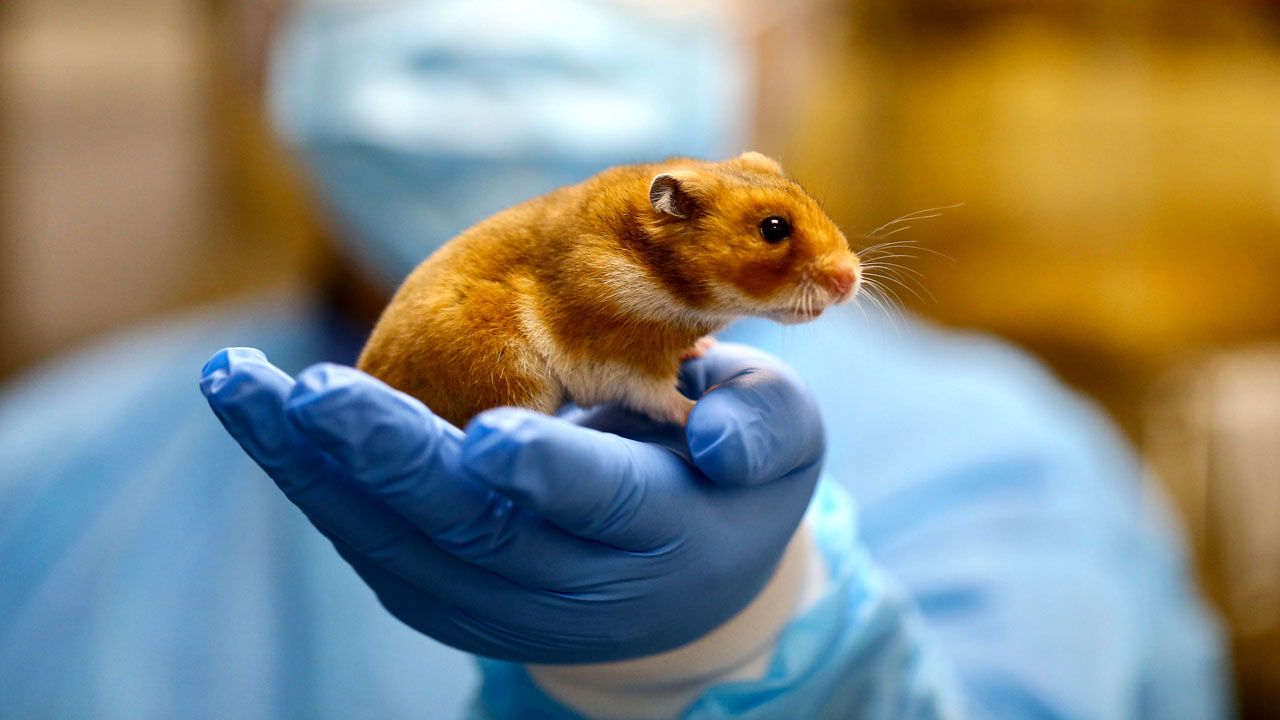
PK, PD and safety studies in mice, rats and hamsters
Study protocols are established. Details protocols are available on demand. Contact us
Special services
- Microscopy and immunofluorescence and morphometric studies
- Confocal microscopy and flow cytometry
- Gene expression studies
- Germfree mice and human reconstituted mice
- Gene deficient mice and reporter mice















